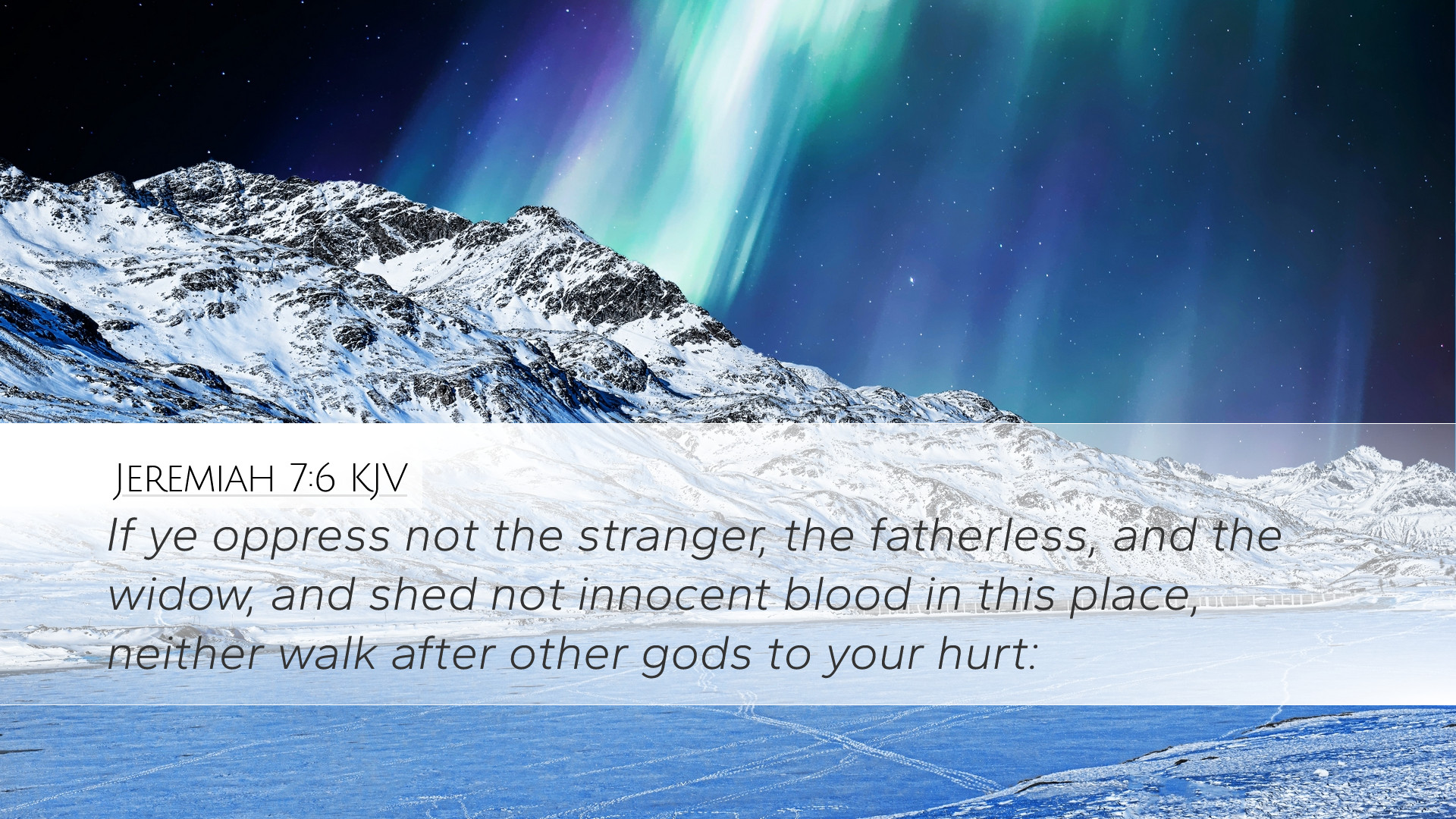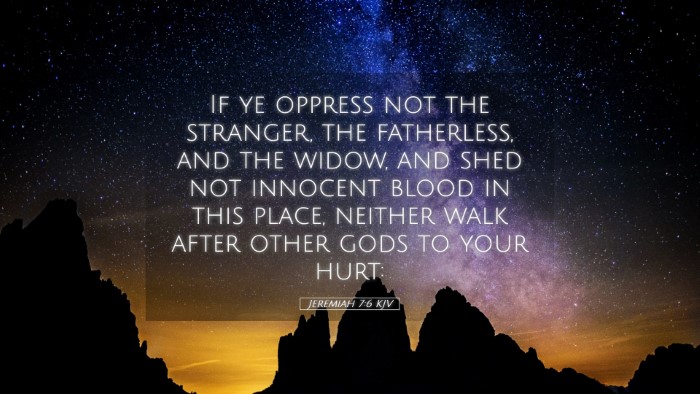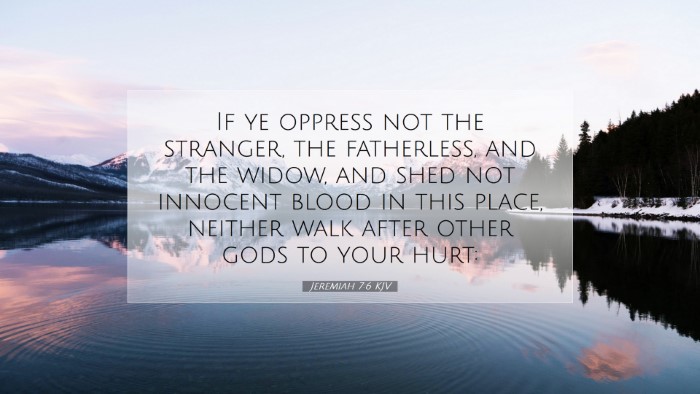Commentary on Jeremiah 7:6
Verse: Jeremiah 7:6 - "If you do not oppress the alien, the fatherless, or the widow, and do not shed innocent blood in this place, and if you do not go after other gods to your own harm."
Introduction
The message of Jeremiah, a prophet during a turbulent period in Israel's history, emphasizes the importance of righteous living and social justice. Jeremiah 7:6 is critical, as it delineates the ethical responsibilities of the people of Judah. This verse, along with its surrounding context, encapsulates the principles of justice and devotion to God that are foundational to the obedience expected from His covenant community.
Understanding the Context
In Jeremiah's time, the nation of Judah faced dire consequences due to their rebellious ways and disregard for covenantal obligations. The temple in Jerusalem had become a false security for the people, leading them to believe they could commit various injustices while still being protected by God's presence. Jeremiah addresses these misconceptions and calls for genuine faith accompanied by ethical conduct.
Exegesis of the Verse
Jeremiah 7:6 can be broken down into three significant components that represent crucial elements of social justice and proper worship:
- Oppression of the Vulnerable: The reference to the alien, the fatherless, and the widow highlights the biblical mandate to protect those who cannot protect themselves. As noted by Matthew Henry, these groups symbolize the last bastion of social justice—communities that often faced exploitation.
- Innocent Blood: The shedding of innocent blood constitutes a severe moral failing, as it represents the ultimate injustice and violation of God's commandments. Albert Barnes emphasizes that this act undermines the very fabric of societal order and God’s justice.
- Worship of Other Gods: The call to avoid idolatry is interwoven in Jeremiah's prophetic warnings. The allure of other gods reflects a divided loyalty that compromises true devotion to the one true God, as cautioned by Adam Clarke.
Theological Implications
The verse carries profound implications for contemporary faith communities. It transcends ancient Israelite culture and speaks to an enduring truth in God's expectations of justice and fidelity.
Social Justice: The enduring principle of guarding the rights of the vulnerable remains vital. The Church today must echo the prophet’s call to champion those marginalized in society, advocating for justice as an expression of faith.
Holy Worship: True worship must be accompanied by ethical conduct. The modern church is reminded that worship devoid of social responsibility is hollow. Hence, worship is not merely a formal activity but a holistic lifestyle reflecting God's justice and mercy.
Historical Interpretation
Throughout history, church leaders have reflected on Jeremiah 7:6 as a call to align social ethics with spiritual beliefs. Early church fathers emphasized the imperative of charity and care for the needy as foundational to Christian practice, drawing parallels with the prophet's warnings.
For instance, Augustine interpreted the verse in light of the Christian community's obligation to live out the principles of love and service, paving the way for social justice movements within the church.
Applications for Today
For pastors and church leaders, this verse serves as a foundational scripture to influence sermons and teachings on justice.
- Encouraging Social Activism: Churches are called to be voices for the voiceless in their communities, reflecting God's heart for justice.
- Holistic Discipleship: Teaching congregations that discipleship involves addressing personal integrity, ethical living, and corporate social responsibility.
- Community Engagement: Engaging with local and wider societal issues as part of the church's mission, modeling Christ's love through action.
- Idolatry Warning: Pastors need to warn against modern forms of idolatry—whether materialism, consumerism, or cultural priorities that distract from genuine worship of God.
Conclusion
Jeremiah 7:6 serves as a timeless reminder of the interconnectedness of faith, justice, and ethical responsibility. The insights derived from historical and contemporary interpretations of this verse invite rigorous reflection among pastors, students, and scholars alike. As we strive to embody the heart of God's message, the challenge remains to weave together our worship and our deeds in a manner that honors Him and serves His creation.


